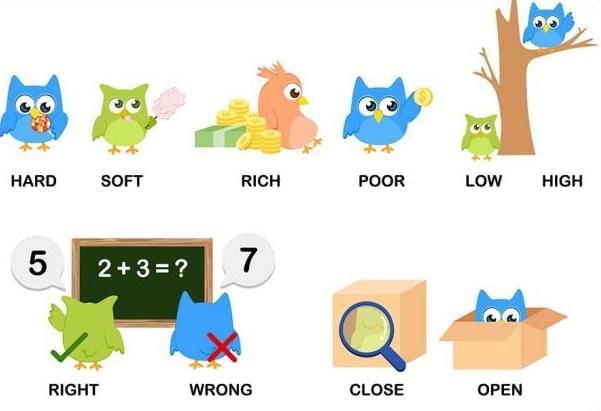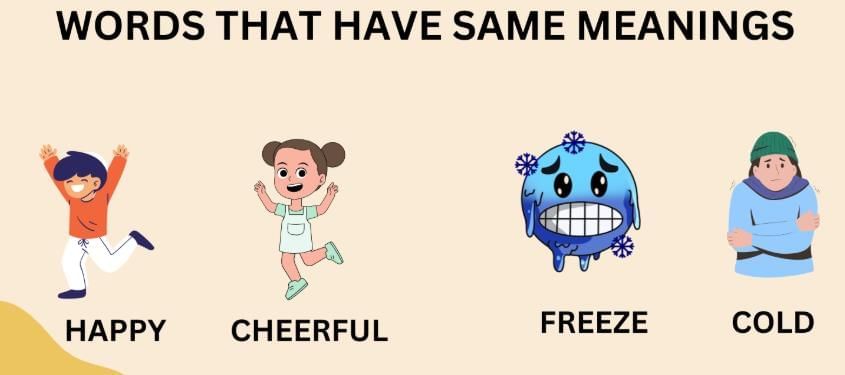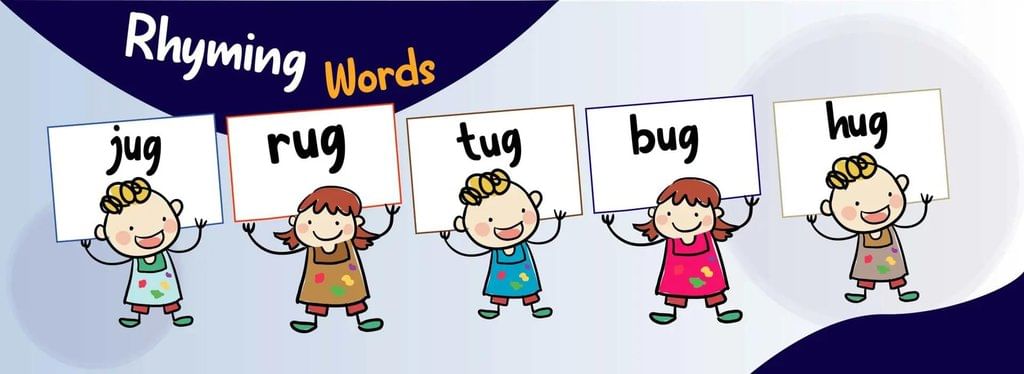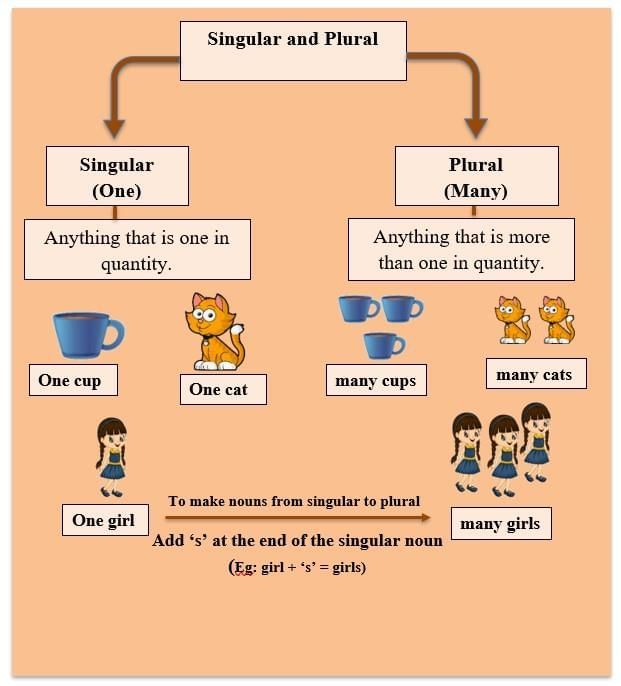Olympiad Notes: Word Power | English Olympiad Class 1 PDF Download
| Table of contents |

|
| Introduction |

|
| Opposites (Antonyms) |

|
| Similar Words (Synonyms) |

|
| Rhyming Words |

|
| Plurals (One and Many) |

|
| Choosing the Correct Word (Vocabulary Use) |

|

Introduction
Word Power means knowledge and correct use of words.
It includes:
- Knowing the meaning of words
- Finding the opposite (antonym) of a word
- Finding words with the same meaning (synonym)
- Recognizing rhyming words
- Making plural forms of words
- Choosing the right word in a sentence
Opposites (Antonyms)
- Antonyms are words that mean the opposite.
- Opposites help us understand word meanings better.
Rules to learn opposites:
- Many opposites are completely different words (hot ↔ cold).
- Some opposites are formed by adding a prefix like un-, dis-, or in- (happy ↔ unhappy, able ↔ unable).
 Antonyms
Antonyms
Examples of Opposites:
- Big ↔ Small
- Tall ↔ Short
- Hot ↔ Cold
- Day ↔ Night
- Happy ↔ Sad
- Up ↔ Down
- Inside ↔ Outside
- Full ↔ Empty
- Fast ↔ Slow
- Good ↔ Bad
Similar Words (Synonyms)
- Synonyms are words that mean the same or nearly the same.
- Knowing synonyms improves vocabulary and writing.

Examples of Synonyms:
- Small = Tiny, Little
- Big = Huge, Large
- Fast = Quick, Rapid
- Child = Kid
- Start = Begin
- End = Finish
- Happy = Glad, Joyful
- Smart = Clever, Bright
- Good = Nice, Excellent
- Cold = Chilly, Cool
Rhyming Words
- Rhyming words are words that end with the same sound.
- They are often used in poems, songs, and stories.
- To find rhymes, look at the ending of the word.

Examples of Rhyming Words:
- Cat → Hat, Rat, Mat, Bat
- Dog → Log, Fog, Hog, Jog
- Pin → Win, Tin, Fin, Kin
- Top → Hop, Mop, Pop, Drop
- Fan → Man, Pan, Ran, Can
- Sun → Run, Fun, Gun, Bun
- Net → Bet, Pet, Get, Set
- Box → Fox, Socks
Plurals (One and Many)
- A singular word means one person, place, or thing.
- A plural word means more than one.

Rules for making plurals:
Add “s” to most words
- Cat → Cats
- Dog → Dogs
- Book → Books
Add “es” to words ending with s, x, o, sh, ch
- Bus → Buses
- Box → Boxes
- Mango → Mangoes
- Brush → Brushes
- Bench → Benches
Change “y” to “ies” if a consonant comes before “y”
- Baby → Babies
- Lady → Ladies
- Story → Stories
Just add “s” if a vowel comes before “y”
- Toy → Toys
- Key → Keys
- Boy → Boys
Irregular plurals (special cases – not regular rules)
- Man → Men
- Woman → Women
- Child → Children
- Foot → Feet
- Tooth → Teeth
- Mouse → Mice
Choosing the Correct Word (Vocabulary Use)
Pick the correct word to complete a sentence.
Examples:
The sun shines in the day. (not in the night)
Fish can swim in water. (they cannot fly)
We wear shoes on our feet. (not on our hands)
Birds build their nests. (not houses)
The opposite of YES is NO.
This checks understanding of word meaning and usage.
|
29 videos|97 docs|63 tests
|
FAQs on Olympiad Notes: Word Power - English Olympiad Class 1
| 1. What are antonyms, and how can I identify them? |  |
| 2. Can you explain what synonyms are and give some examples? |  |
| 3. How do I form plurals for nouns, and can you provide examples? |  |
| 4. What is the importance of choosing the correct word in vocabulary usage? |  |
| 5. How can I find rhyming words, and why are they useful? |  |














